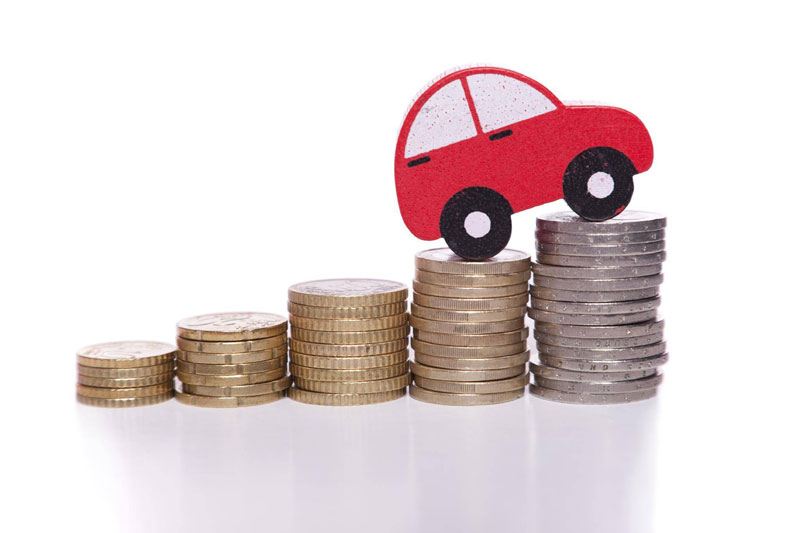8 Ways to Deduct the Cost of Your Automobile
May 27, 2022 By Susan Kelly
Owning a car is one of the most expensive purchases we can make, both in the initial purchase price and the annual maintenance costs. Fortunately, there are legitimate tax deductions available to offset these costs. This list of possible deductions for self-employed taxpayers, small business owners, and sole proprietors may apply to your situation.
1. Charitable Contributions
Consider donating your old automobile to charity rather than trying to sell it for a profit if it won't last much longer and the repair costs aren't worth it. You won't have to deal with potential purchasers trying to bargain you down from the price you set in your ad.
And if you know your automobile isn't worth much, giving it may be a better option because you can deduct the remaining market value of the vehicle.
Car donation pick-up services are available from several charities. Suppose you donate a vehicle to a charity. You can claim a tax deduction for personal and commercial purposes as long as you have an official acknowledgment from the charity that includes the vehicle's worth.
2. Electric or Hybrid Cars
Those who purchase plug-in electric-powered automobiles after December 31, 2009, are eligible for a tax credit from the IRS. The credit can go up to $7,500 depending on the specifics. The credit expires once a company has sold 200,000 qualified vehicles in the United States. You might be eligible for a tax credit if you acquired an electric or hybrid vehicle after December 31, 2009.
3. Convert Your Car
Is it possible to keep your present automobile while reducing emissions? Consider an electric drive conversion kit that a professional mechanic can install.
Ask a mechanic whether your car is worth converting before you buy the kit; in some circumstances, such as on older automobiles that have little life left, the cost of conversion may be an investment that is not worth making. However, if you have a modern automobile with a lot of life remaining in it, converting can save you money on gas.
4. Deduct Business Use

Using your vehicle for business purposes is tax-deductible for independent contractors and other self-employed individuals. A sole proprietorship, rather than a corporation, is the most appropriate business form for those who operate. In this case, it's crucial to distinguish between personal and professional use.
Tracking your mileage and keeping receipts is a good idea if you're driving your automobile for self-employment company expenses to distinguish between personal use and tax-deductible business use.
5. Small Business Fleet Deductions
If you own a small business, you may be able to deduct your operational expenditures, including the cost of a vehicle, from your yearly taxes. It is possible to deduct the cost of repairing a business vehicle, even if the cost of overhauling it is not (overhauling must be included in capitalization and depreciation costs). 3 The IRS will not be pleased if you claim a repair cost based only on an estimate.
6. Unreimbursed Business Expenses
Tax deductions can be claimed for business-related expenses incurred while driving your vehicle while employed by a company you were not reimbursed.
The IRS updates its per-mile cost regularly, which can be used to estimate these costs, including gasoline and maintenance. The key to deducting company and personal expenses separately is the same for self-employed taxpayers.
7. Keep Good Records
When it comes time to file your taxes, an Illinois CPA recommends that you keep thorough records throughout the year. According to Johnson, who has taken on the moniker "the Tax Dude" bestowed upon him by a former customer, the more details you can provide, the better.
Maintaining a record of your company mileage is critical to claiming a deduction for vehicle expenses. "Include who your clients were, why you were there, and what you were working on while there... It'll become second nature if you put it into an Excel spreadsheet every day."
If you're self-employed and have a designated home office, your business-related driving to and from clients' offices can be deducted as business expenses.
According to Block, the first and last commuting trips of the day are deductible if you have a home office. Put another way, if you're a freelancer who frequently goes to the offices of different customers, your first trip out of the house and your last trip back aren't tax-deductible. However, you can deduct the cost of driving between each customer.
8. More Miles, More Money

"Although it may not seem like much, it adds up," Schrage said, noting that mileage is the biggest deduction.
Driving to a job-related location, such as a sales meeting or the airport, may count as work-related travel miles. You can deduct the additional distance if you have been temporarily relocated to a worksite that is further away from your house, " he stated. It's impossible to deduct mileage expenditures if your company pays for them.
For business miles driven in 2021, the per-mile cost is 56 cents. Publication 463 of the Internal Revenue Service (IRS) provides the most up-to-date information on the subject (go to IRS.gov or call 1-800-TAX-FORM).
See "Standard Mileage Rates" for a list of current and previous year's mileage rates. To accommodate people who lease their cars, there is a separate table. Self-employed individuals can deduct their actual expenses or use the optional standard mileage rate.
According to Block, you can deduct up to 75 percent of your vehicle's expenses if you're using it mostly for business purposes.
A car used only for business is 100% tax-exempt." A complete diary and all receipts are recommended, or you can keep an annual mileage log to see how much of it is devoted to working. "If you have a gas guzzler, you're better off taking the actual deductions," adds Block.








